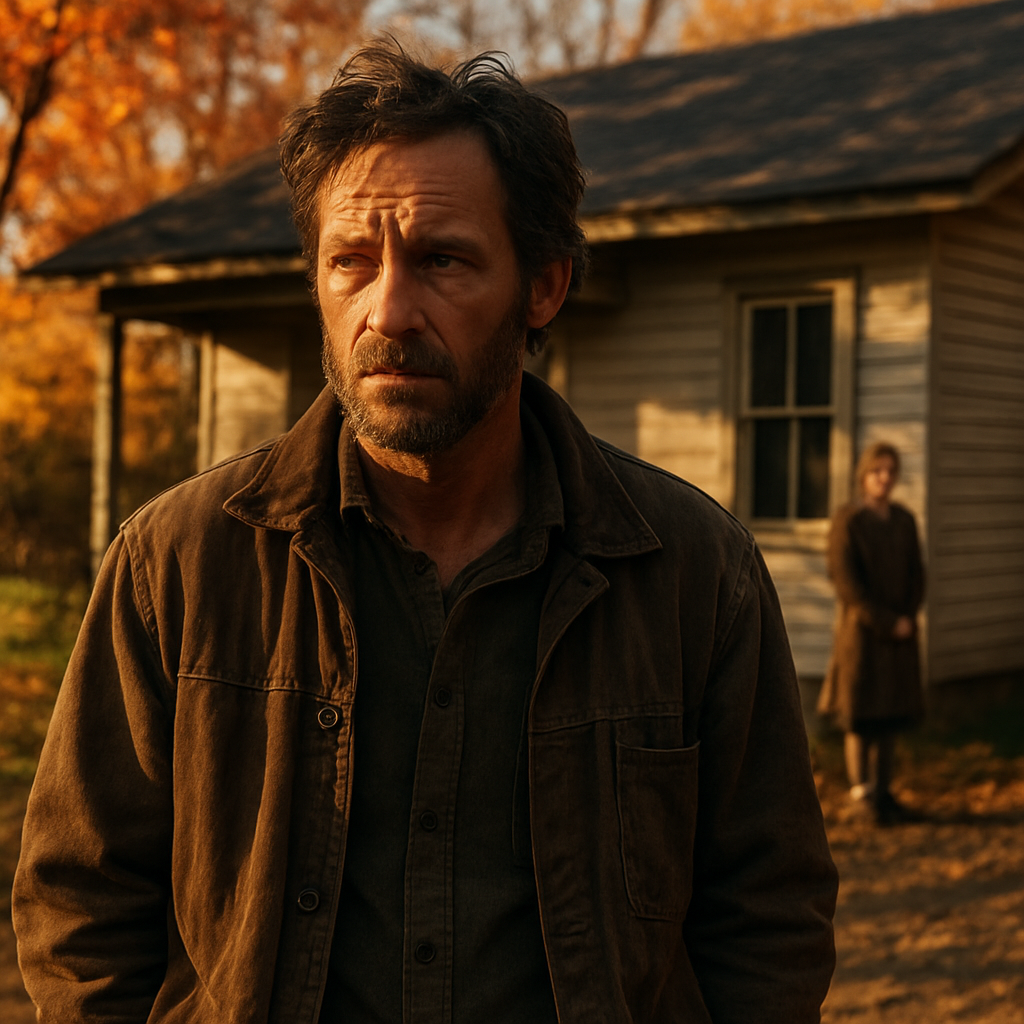The man’s worn boots crunched on the gravel path as he walked toward the barn. His face was set, jaw muscles tensed beneath his three-day stubble. He had come to fix things, but not the fence posts or the loose boards of the shed door. He wanted to repair what was broken between himself and his wife. The morning sun cast long shadows across the property they had built together, one that held their dreams but now felt empty of connection. He stopped, took a deep breath of early autumn air, and turned back toward the house where difficult words waited to be spoken.
🔥 The Identity Split That’s Killing Your Relationship
I see it every damn day in my practice. Men stuck between who they are and who they think they should be. The guy who comes to me wearing steel-toed boots and Carhartt, but has a secret collection of poetry he’s never shown his wife. The executive who crushes it in the boardroom but feels suffocated by the life he’s built. The tradesman who dreams of travel but settles for hunting trips because that’s what “guys like him” do.
These men aren’t just confused—they’re fragmented. What psychologists would call identity disintegration, I call emotional circuit overload. Your system wasn’t designed to handle contradictory identity frames simultaneously, and it’s burning out your relationship’s wiring.
Last month, a client—let’s call him Mike—sat across from me, describing his latest relationship collapse. He’s a carpenter with rough hands and a craftsman’s eye who also happens to have a passion for classical music and art history. “Women either see me as the blue-collar guy who can’t appreciate their intellectual world, or they see me as too refined for ‘real work.’ I’m always half-invisible.”
Here’s what nobody tells you about being a man: your emotional bytes—those units of sensation, feeling, need, and narrative—aren’t organized around what you enjoy, but around who you believe you’re allowed to be. Most men are walking around with emotional frames that act like prison bars rather than windows.
⚠️ The Values-Interests Trap
Research consistently shows that men fall into a trap when selecting partners. We convince ourselves that shared activities and similar interests matter most, when what actually predicts relationship satisfaction is alignment on core values and lifestyle vision.
I made this mistake in spectacular fashion in my twenties. I married a woman because we shared the same taste in music, films, and outdoor sports. Problem was, I wanted kids and a steady home base; she wanted to travel indefinitely and build her career internationally. Our Spotify playlists matched perfectly while our life scripts were written in different languages.
Your emotional bytes around relationships have been programmed to prioritize surface-level connection because it’s safer than the vulnerable work of values alignment. It’s easier to say “she doesn’t get my music” than “we disagree about what makes a meaningful life.”
The truth is: A shared love of death metal won’t matter when you’re negotiating where to live, how to raise children, or whether to prioritize security or adventure.
🎯 Field-Testing Your Compatibility
When I work with men navigating the compatibility maze, I give them one assignment that cuts through the noise: the Future Day Field Test.
Here’s how it works: Imagine spending a random Tuesday with your partner five years from now. Not a vacation, not a special occasion—just a regular damn Tuesday. What does that day look like? 🤔
- Where are you living?
- What are your morning routines?
- How do you spend your evening?
- What conversations happen over dinner?
If you can’t picture a Tuesday that would satisfy both of you, you’re building a relationship on emotional quicksand.
One client—a heavily tattooed chef with a corporate background—used this exercise with his farm-raised, traditionally-minded girlfriend. They discovered that despite their different aesthetics and social circles, they both wanted the same Tuesday: early mornings, physical work, home-cooked meals, and quiet evenings with minimal technology. Their superficial differences masked deep lifestyle compatibility.
The Straight Shot: Your emotional frames about identity—not your interests or her perception of you—are what’s limiting your relationship options. Those frames were installed by family, culture, and early experiences, creating invisible structures that filter out potential partners before you even realize it.
⚖️ On The Balance of Things
Most men believe they have to find someone who mirrors them completely or resign themselves to fundamental incompatibility. This is factory-grade bullshit.
What emotional bytes research demonstrates is that we don’t need partners who duplicate our interests—we need partners whose emotional scripts complement our own. The gothic woman who wants farm life isn’t a contradiction—she’s a complete human with multiple emotional frames that don’t need to be resolved or simplified.
Truth is: Compatibility isn’t about finding your clone; it’s about finding someone whose life vision creates space for your full identity to breathe and evolve. The rest is negotiable terrain.
When I finally got my relationship right after two failed marriages, it wasn’t because my wife and I share the same playlists or hobbies. It’s because our emotional bytes around what constitutes “the good life” resonate at the same frequency, even when our interests diverge.
What’s stopping you isn’t out there—it’s the emotional frames you’ve built that tell you certain parts of yourself don’t belong together. Break those frames, and you’ll see potential partners you’ve been blind to all along.
—Jas Mendola, knowing that every man carries multiple versions of himself, and the strongest among us make peace with all of them 💪
https://www.eharmony.com/dating-advice/dating/compatibility-relationship/
https://bluejeanblues.net/dating/
https://www.ijp.org.uk/docs/Theory_and_Practice_of_Counseling_and_Ps.pdf

